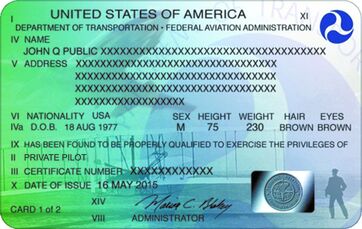No matter how safe a pilot may try to be, none of us are perfect. There will come a time when all of us will violate one or more Federal Aviation Regulations, and when that time comes, you need legal representation. The General Aviation Law Firm, P.C. represents certificated pilots and mechanics at all levels of investigations and enforcement. From seemingly casual investigations by the to Certificate Enforcement Actions to NTSB Hearing Appeals, we work to protect pilots and mechanics from actions that will endanger their certificates.
The worst words a pilot wants to hear from ATC is: “When you land, call this number”. Should you? It depends.
First, a pilot has no legal obligation to make the call. If ATC thinks you caused a reportable violation, they must forward their findings to the local Flight Standards District Office (FSDO). Unlike the traffic cop who just pulled you over, ATC isn’t going to be sweet-talked into giving you a pass.
Second, how disciplined are you to say only what you what is necessary? A pilot should never say anything more than providing their certificate number and contact information to ATC. Any other admissions are just foolish.
The next step in the process is a contact from an Aviation Safety Inspector at the FSDO. This is where pilots need to be very careful. Anything you say on any phone call can and will be used against you. Often pilots try to be helpful, end up signing like a canary, and confess to two or three other violations that the FAA didn’t even know about. This is why pilots should immediately contact an experienced aviation attorney to represent them the instant any investigation starts.
In 2015, the FAA adopted a new Compliance Philosophy (now called the Compliance Program) where less violations would become legal enforcement actions and instead become counseling and training. For the most part, we have seen a dramatic reduction in the prior 30-60-90 day suspensions for trivial violations. However, the FAA is still quite aggressive on revocable offenses such as fraudulent applications (medical or pilot), and other actions that they deem “reckless”.
If your case goes to enforcement, it takes one of two basic routes:
- Emergency; and
- Non-emergency (all others)
Most emergency cases are for revocation, such as failure to report a DUI on your last medical. In emergency cases, the FAA can demand the airman surrender their certificate pending a hearing in front of an NTSB Administrative Law Judge (ALJ). The emergency hearing must be held within 30 days. For all other (non-emergency matters), a hearing with an NTSB ALJ will take place in 3 to 6 months, and pending the hearing the airman retains their certificate with all its privileges.



